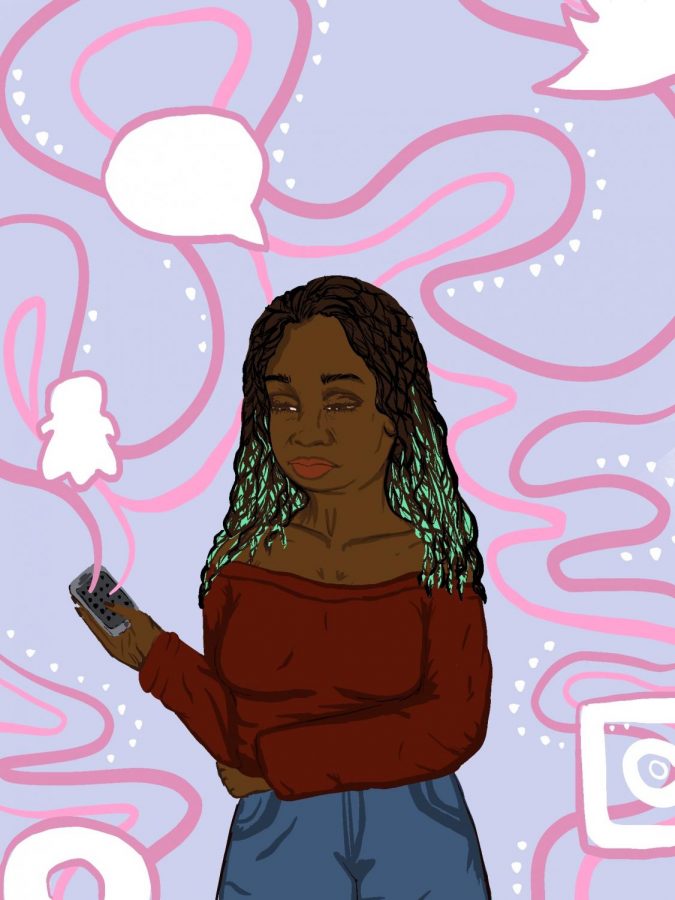OPINION: Social media informs voters through educated debate
Online debate may have its negative effects, but there are also a significant amount of benefits that come with it
Social media helps keep us informed and educated about political events. It encourages debate, discourse and conversation, which are key parts of building a more informed, engaged society.
October 7, 2020
The idea that social media is simply child’s play is far from the truth. While some young adults are using it to build their businesses from the ground up, others are getting paid to share their lives and artistic abilities as a full-time gig.
Others are using it to educate themselves on racial inequality, human rights issues in the U.S. and political events in their hometowns and native countries. We are now able to connect with people who know more than us, and can share our knowledge in a way that matters.
So, why aren’t we using this platform to its full potential? We have access to the most widespread platform for informal news that has ever existed. Rather than brushing it off as the place to post selfies and status updates, we should use it to share stories, knowledge and information.
Technology has been integrated into every part of our lives. Though for many it has been used for personal entertainment or a simple way to stay connected with friends, at WSU, they are preparing future educators to harness technology in a productive way.
“We take a class that’s all based around how to use technology to teach students,” Sydney Brager, junior elementary education major, said.
By integrating access into education, they are also initiating a powerful exchange between young people and information. As many saw this summer, movements like Black Lives Matter can use social media’s interconnected nature to spread news, information and ideas.
Overnight, it seemed as though everyone in the country knew of George Floyd’s death at the hands of a police officer, even though it had happened months before. As the summer unfolded, so did the movement for justice. Across the world, people linked by social media protested on his behalf.
These apps enabled people to stay up-to-date on petitions, arrests, court proceedings and BLM protests in other countries. This connection is palpable and so powerful, but it wouldn’t be right to claim it is entirely faultless.
“I think [social media] has a lot of potential,” Brager said. “I think there are some amazing things that can happen with it, I just think that information is power, and in the same way, false information can be scary.”
Though it gives individuals an incredible amount of power to share information, social media can also spread misinformation. That misinformation can spread quickly because of its power to connect people.
“When it comes to social media, I think it is a great resource for people to start building their thoughts or even sharing their thoughts,” Paige Wagner, senior elementary education major, said, “but, with the information on social media, I like to remind myself and my close friends to take the information with the grain of salt.”
It is important to recognize the faults of this platform in the same way we recognize those of “trustworthy” platforms like mainstream news outlets and journalists.
“You think about CNN or Fox News, and even just looking at what both of those platforms are saying about the same event … I like to look at lots of different sources, rather than just one for information,” Brager said.
This kind of perspective only comes with experience. The ability to step away from one news source and recognize its bias — and your own — can be hard to practice. However, it is necessary to be truly informed on any political point, civil rights movement or piece of knowledge.
If your goal is to be truly educated on these issues, you must take all of these things into account. Social media should be one source of that information, but never the only one.








